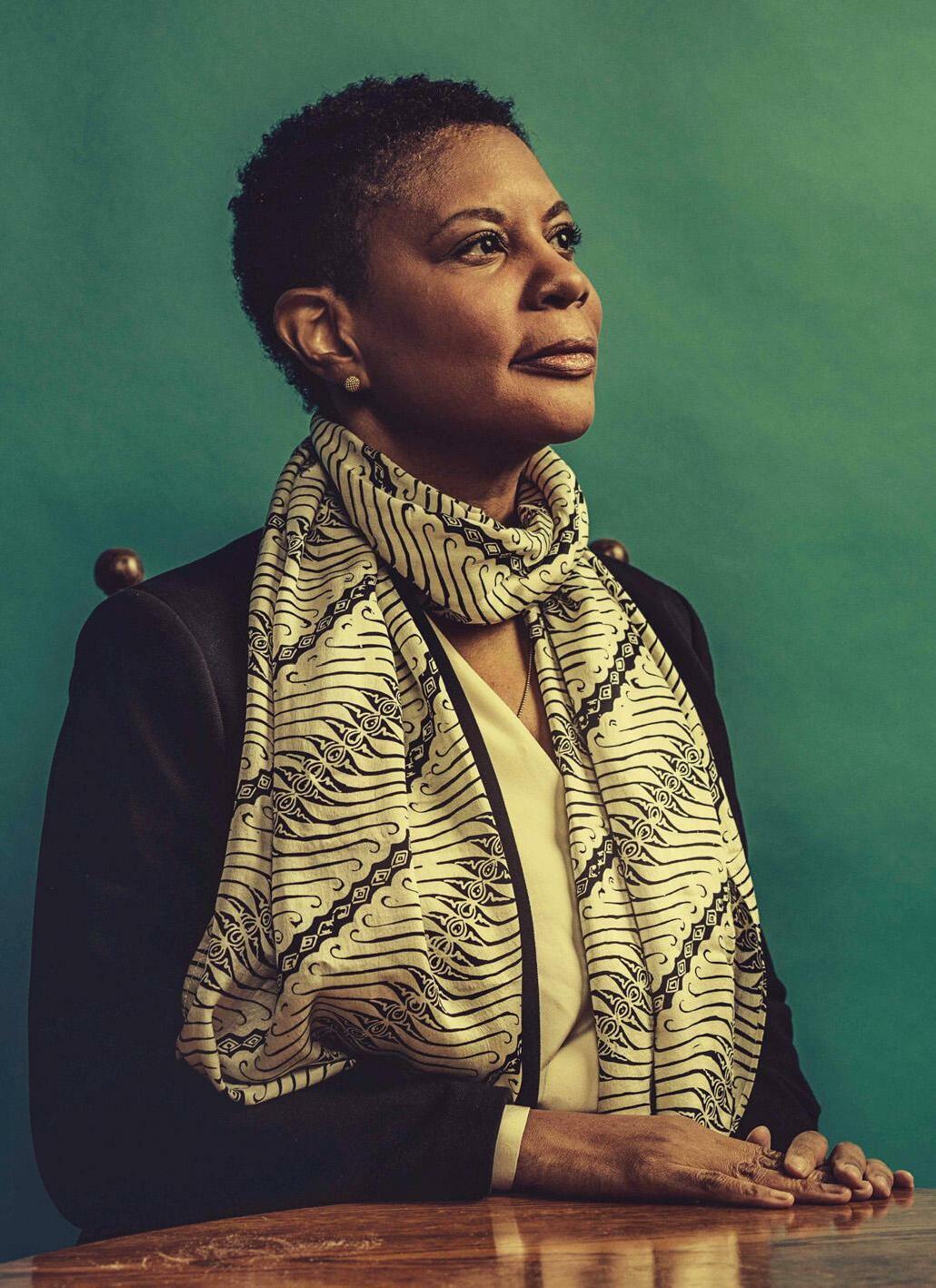يحاول ذهب - حر
TIME 100/AI: SHAPERS
October 09, 2023
|Time
THE 100 MOST INFLUENTIAL PEOPLE IN ARTIFICIAL INTELLIGENCE
-

Alondra Nelson
RESEARCHER AND POLICY ADVISER
WHEN THE BIDEN WHITE HOUSE was tasked with responding to the rapid changes in generative AI last year, Alondra Nelson led the charge. As the director of the White House Office of Science and Technology Policy (OSTP), Nelson oversaw the release of the Blueprint for an AI Bill of Rights last October. The document is not binding by law or enforceable, but lays a framework that she hopes both AI builders and policymakers will abide by in order to ensure that AI is a force for public good. "Fueled by the power of American innovation," the document reads, "these tools hold the potential to redefine every part of our society and make life better for everyone."
Nelson also hopes the 73 pages will spur Congress to draft and pass AI legislation as soon as possible. "It's incredibly urgent," she says. "We have a cautionary tale of not long ago with social media regulation, where we did not move quickly enough."
Nelson came to the White House with a knockout résumé: professor at Columbia and Yale, president and CEO of the nonprofit Social Science Research Council, and author of several acclaimed books on genetics, race, and medical discrimination. She brought the same rigor and attention to detail to the AI blueprint, which she formulated over the course of a year, with she and her team talking extensively with industry players, academics, high school students, and teachers. From those conversations, Nelson identified a collection of best practices for industry players, including red teaming-stress-testing AI systems before they are publicly deployed-and continual audits.
هذه القصة من طبعة October 09, 2023 من Time.
اشترك في Magzter GOLD للوصول إلى آلاف القصص المتميزة المنسقة، وأكثر من 9000 مجلة وصحيفة.
هل أنت مشترك بالفعل؟ تسجيل الدخول
المزيد من القصص من Time

Time
CO₂ Leadership Report
THE ENVIRONMENTAL PROTECTION Agency's Feb. 12 repeal of its “endangerment finding”—which underpins all of its noteworthy climate rules—was framed by the Trump Administration as a big win for American industry.
1 mins
March 09, 2026

Time
Sentencing of Hong Kong publisher raises fears in Taiwan
WHEN A HONG KONG COURT HANDED media tycoon and pro-democracy leader Jimmy Lai a 20-year jail term on national-security grounds on Feb. 9, his son called it a “death sentence” given Lai’s age, 78, and deteriorating health. Others saw the same bleak implications for freedoms in Hong Kong—and a glimpse into what could be in store for others Beijing views as troublesome.
1 min
March 09, 2026

Time
James Van Der Beek
James Van Der Beek, best known for playing Dawson Leery in the '90s teen drama Dawson's Creek, \"passed peacefully,\" his family said, on Feb. 11 at age 48, after a battle with colorectal cancer.
1 min
March 09, 2026

Time
Love Story tries too hard to be The Crown for America
IF THE KENNEDYS ARE THE CLOSEST THING AMERICA has to a royal family, then Carolyn Bessette Kennedy was our Princess Diana. Like her British counterpart, she was an outsider—albeit a beautiful, stylish, blond, privileged one—to the palace intrigue that consumed the family she married into. She was stalked by paparazzi and alternately worshipped and vilified. And then she died, in her mid-30s, in a horrible accident, only to have her legacy dissected for decades to come. We never let either woman rest in peace.
2 mins
March 09, 2026

Time
VARIATIONS ON A THEME
A new Wuthering Heights adaptation joins a rich history of cinematic reimaginings
5 mins
March 09, 2026

Time
Why you should warm up your feet before bed
GETTING COLD FEET IS INCONVE-nient in many situations—including when you go to bed.
2 mins
March 09, 2026
Time
In the Loop
For 15 years, Dex Hunter-Torricke worked near the pinnacle of the tech industry.
1 min
March 09, 2026

Time
The People VS. AI
THE GRASSROOTS BIPARTISAN MOVEMENT TO REIN IN AN INDUSTRY
15 mins
March 09, 2026

Time
16 LEADERS WORKING TOWARD A BETTER, MORE EQUITABLE WORLD
TEYANA TAYLOR IS BALANCING A WORKLOAD that borders on ridiculous.
28 mins
March 09, 2026

Time
Breezy Johnson The U.S. skier on winning Olympic gold, that mountain marriage proposal, and Lindsey Vonn's example
After your super-G race on Feb. 12, your boyfriend Connor Watkins proposed at the bottom of the slope.
2 mins
March 09, 2026
Translate
Change font size
